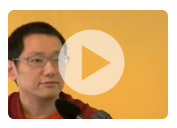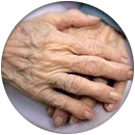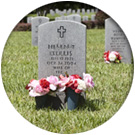Many Buddhist teachings provide a way to live in the world more fully, more positively, more peacefully. While mediation and other clearly defined practices clarify our understanding and strengthen our intent—the mindful equivalent of muscle memory—in truth every aspect of our lives provides an opportunity to put these teachings into practice. By integrating them this way, we can, indeed, live better.

You can neither choose your family, nor quit them. You have a responsibility towards them—and you will be happier if you make that responsibility light and joyful.
Especially in relationships where you care a lot, expectations run high and disappointment is ensured. Someone makes a single mistake—and your mind erases all the other good they have done. Yet, by hanging onto your negative feelings, you are the one who suffers.
Instead, you must accept your parents, your brothers, your sisters, your children for who they are. You cannot change them. You can only change your attitude towards them, experiencing them in the best possible light.
If you have a troubled family relationship, practice looking at it from a different perspective. Let go of the bad; focus on the good. Make it a habit, pursued with low expectations but utter consistency. Over time, you will find things shift, not only improving the relationship but also helping the entire family dynamic.

There are as many types of relationships as there are types of people. They exist at work and among friends, between spouses and within families. They are formal and informal, individual and dynamic. The first step in any relationship is understanding who you are to that person—and therefore what your expectations of the relationship should be. Within those expectations, remain mindful of your words, your actions, your physical expressions. Always look for the best available options—rather than the absolute best options—and learn to be happy with those.
When there is a mistake or an unpleasantness, accept it, knowing that the other person is also a victim of his emotions and ignorance—that that is his reality. Over time, this approach will improve most relationships; unless there is no karma at all between you, the other person will understand that you love and care for them. And even if the relationship does not improve, you will know you did your best.
Ultimately, it is important not to live in a past version of a relationship. This is particularly true when romantic relationships end. People suffer because they miss the past, or they suffer because they hate the other person. Both are irrelevant. The relationship is gone. Worse, these attitudes are harmful, because they restrict your present, preventing your ability to see a new, better partner. If you don’t want the other person to affect you, the best weapon you have is to focus on the present.

The most important factor regarding work is to maintain balance.
At work, be mindful. Stay positive, but stay true to who you are. Think about what you can contribute—and make that contribution without ego (If you offer a good idea for the company, make it about improving the company, not about your brilliant idea.)
Find work that benefits others, as well as yourself, and that does little harm.
Finally, balance your time, leaving space for work, for family and also for yourself. There are people who are very successful at work, and financially rich, but who have poor family relationships. Leave your work at work; stay present at home.

To see Rinpoche discuss work-life balance, click here.

In life, some stress is expected. It’s not bad, it simply means you are not completely relaxed; an inner force is pushing you forward. Use it; if you resist, for instance by procrastinating, then the stress increases, you worry—and soon you are wasting time worrying.
Instead, stay in the present moment. Deal with the now. Don’t expect a perfect solution. That builds stress. Just as in meditation, learn how to use minutes, rather than waiting until you have hours. Small achievements will make you happier, which will create a virtuous cycle.
Finally, be mindful of the effect your stress has not only on yourself, but on those around you. Stress affects emotions, and emotions are only satisfied when they contaminate someone else, who then makes you suffer in return. That makes you a victim twice. Often when people work long days in the office, they bring their stress home to their family. With mindfulness, you can learn to separate the two.

Emotional health and physical health are deeply interconnected. When you are emotionally strong, it is easier to be physically strong; when you are emotionally weak, it is easier to get sick and more difficult to heal. Even medicine is more effective if you are emotionally strong.
Therefore, you must be careful about what you feed both your body and your mind. All the teachings that bring inner wisdom serve as food for your mind. They help you discover your innate wisdom; understand how to repair yourself; learn to love yourself.
Of course, you also have to pay attention to what you eat, both in content and amount. Follow a primarily vegetarian diet; it is easier on your body, and shows compassion for animals. Eat slowly, mindfully, in a balanced way. Don’t starve, but be careful not to overeat just because something tastes good or out of habit; ideally at the end of a meal your stomach should be one third liquid, one third food and one third empty.
And be sure to move: exercise is very important for both mental and physical health.

Aging is a reality of life, something you are engaged in from the moment you are born. We call it growth in children, but it is the same process in adults; it is simply a continuation, changing the elements of the body. It’s our nature to change. It’s not bad; it is simply what it is.

Illness comes in many forms, with many degrees of intensity. From the moment you are born, your body is prone to become ill if it is not in balance; a genetic disease simply means your body is more prone, but it still needs the right conditions to become ill. These include poor food, poor sleep, insufficient hydration, germs. What can you do?
• Recognize that you can only minimize illness; you cannot eliminate it.
• Avoid illness by living right, eating right, exercising.
• Be your own physician. What is “right” is very individual. Be mindful of your own body, your own health. Pay attention to what makes you feel good physically. Look for patterns, and behave accordingly.
• Accept that the body is prone to illness, and that at the end of life comes death. The uncertainty of death is exactly the same for everyone; we just aren’t aware of it. During the life of a “sick” person, many “healthy people” die; your danger of dying is not more acute simply because you are ill; the danger is there all the time.
Finally, you have to separate pain and suffering. Pain is related to the physical—from a cut, a disease, an infection. If you have pain, don’t complain; work with it. If you blame someone else, then you will still have pain—and, in addition, lots of suffering.

But, in truth, death is not the end. The elements of your body and your consciousness are bound together by life, like a bunch of flowers are bound by a string. When the string gets too old, the bunch disintegrates. Your physical being and consciousness are separated—but they still exist. Even if your body is cremated, its elements still exist, just in a different form. Equally, consciousness continues. Death is the end of one trip, not the end of the journey.
Of course, at the time of death you will experience lots of strong emotions as the elements disintegrate. It is very important to have a calm mind during this. Meditation is very helpful. Understanding the mind becomes very important. Above all, instead of focusing on the past, you need to concentrate on the future.


